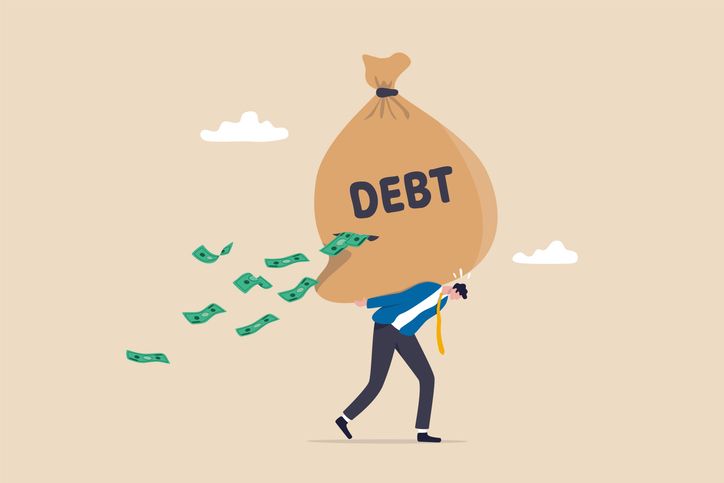
When you’re working to rebuild your credit, deciding what to do about old debts can feel overwhelming. Should you pay them off, settle them, or simply let them age? While each credit situation is unique, it’s essential to consider how handling these old debts impacts your credit score and financial future. Here’s a guide to help you make the right choice for your credit repair plan.
1. Understand the Impact of Old Debts on Your Credit
Old debts, especially those in collections, can significantly lower your credit score and may affect your ability to get new credit or loans. However, not all old debts have the same weight in the eyes of creditors or credit scoring models. For example:
- Paid vs. Unpaid Debts: Unpaid debts are generally more harmful than paid ones. If you settle or pay off an old debt, it can be noted as “paid in full” or “settled,” which looks more favorable than a lingering balance.
- The Age of the Debt: Credit reports typically have a seven-year reporting period, meaning most debts fall off after seven years. If your old debt is approaching that timeframe, paying it off might not immediately improve your credit.
2. Pros and Cons of Paying Off Old Debts
Before making any payments, weigh the pros and cons of paying off old debts:
- Pros:
- Improved Chances with Creditors: Paying off old debts can make you look more reliable to lenders, especially if you’re applying for new credit.
- Potential for Score Improvement: Some scoring models (like FICO 9 and VantageScore 3.0) place less emphasis on collection accounts if they’re paid off, which can lead to a score boost.
- Reduced Stress: Clearing old debts can provide peace of mind and help you feel more in control of your financial future.
- Cons:
- Minimal Impact on Score in Older Models: Traditional FICO scoring models treat paid and unpaid collections similarly, so paying off old debt might not have an immediate positive impact.
- Possible Resurgence of Collection Efforts: Sometimes, paying off an old debt can bring it back to the forefront in the creditor’s system, potentially affecting your credit score negatively.
- Restarting the Clock: In some states, paying on old debts could reset the statute of limitations, which is the legal time frame collectors can sue for repayment. Always check your state laws before making payments on old debts.
3. Options for Dealing with Old Debts
If you decide paying off your old debt is part of your credit repair plan, consider these strategies:
- Pay the Debt in Full: If financially feasible, paying the debt in full and asking for a “pay for delete” (a request for the creditor to remove the negative account from your report in exchange for payment) might help. Note that creditors are not obligated to honor this request.
- Negotiate a Settlement: You can negotiate to pay a reduced amount in exchange for the creditor reporting the account as “settled.” This won’t have the same impact as “paid in full,” but it’s better than leaving it unpaid.
- Dispute Errors: If you notice any discrepancies or inaccuracies, disputing them with the credit bureau could lead to their removal, improving your score without needing payment.
4. When to Let Old Debts Age Off Your Report
In some cases, allowing an old debt to “age off” your report might be the best option:
- If It’s Close to the 7-Year Mark: Debts typically fall off your credit report after seven years. If the debt is close to aging off, it may make sense to wait rather than pay it.
- If the Debt’s Statute of Limitations Has Passed: If the debt is beyond the statute of limitations, creditors cannot legally sue you for it. This can be a factor in deciding whether or not to pay.
5. How Paying Off Old Debts Fits into a Credit Repair Plan
Credit repair is about creating a comprehensive strategy that prioritizes your financial well-being. Paying off old debts may not give an immediate score boost, but it can:
- Strengthen Future Loan Applications: Lenders may look favorably on a report with fewer unpaid debts.
- Contribute to a Positive Payment History: Building a record of resolved debts shows lenders you’re committed to financial responsibility.
- Enable Healthier Financial Habits: Working through old debts helps establish the discipline and strategies you need for long-term credit health.
6. Tips for Building a Strong Credit Repair Plan
- Focus on New Positive Activity: While handling old debts, focus on making timely payments on current accounts. Positive activity can outweigh some of the negative impacts of older debt.
- Keep Credit Utilization Low: High balances can hurt your credit score. Try to keep your credit utilization below 30% on all accounts.
- Monitor Your Credit Report Regularly: Keeping an eye on your report can help you track improvements and catch any new issues early.
Final Thoughts
Whether or not to pay off old debts depends on your individual situation, financial goals, and the status of the debt. Taking a strategic approach to handling old debts—whether paying them off, settling, or allowing them to age off your report—can be a crucial part of your credit repair plan. Remember, credit repair is about building a brighter financial future, so keep your long-term goals in mind as you make each decision.
By assessing your debts carefully and making informed choices, you’ll be well on your way to achieving a healthier credit score.
